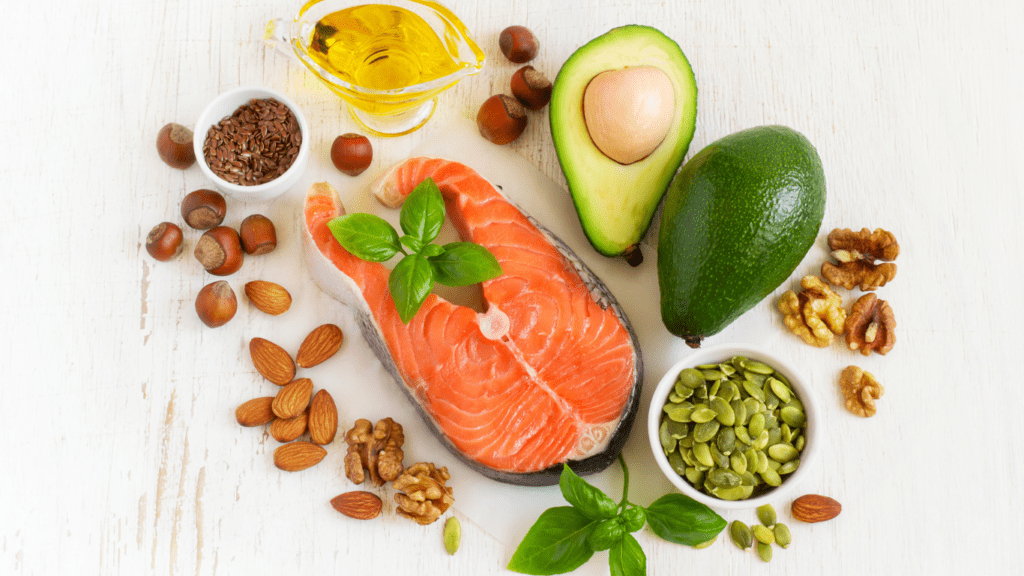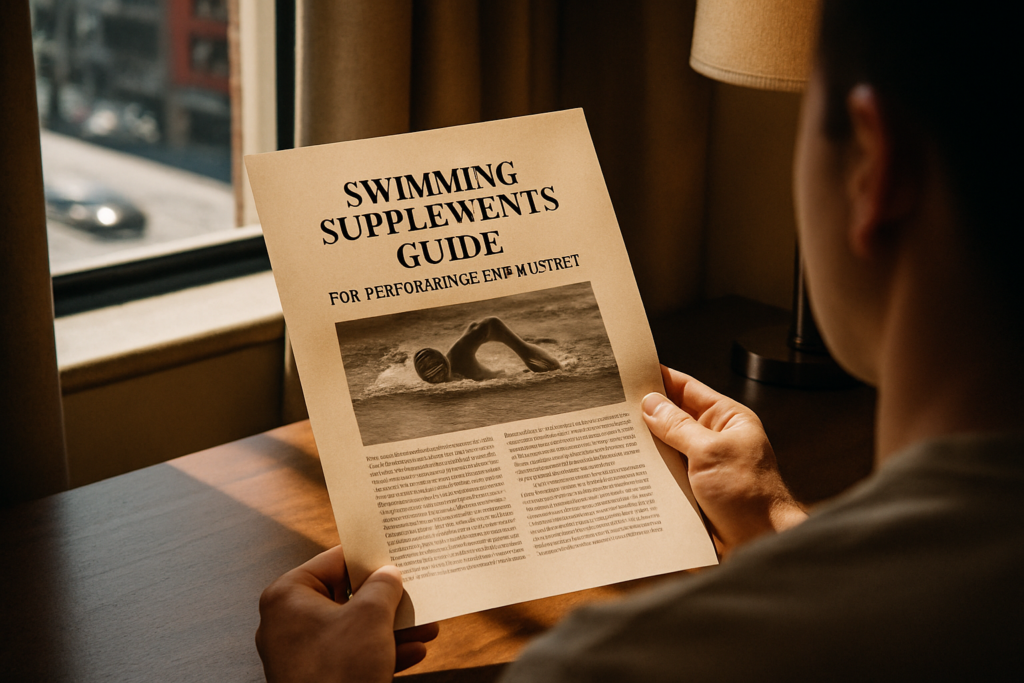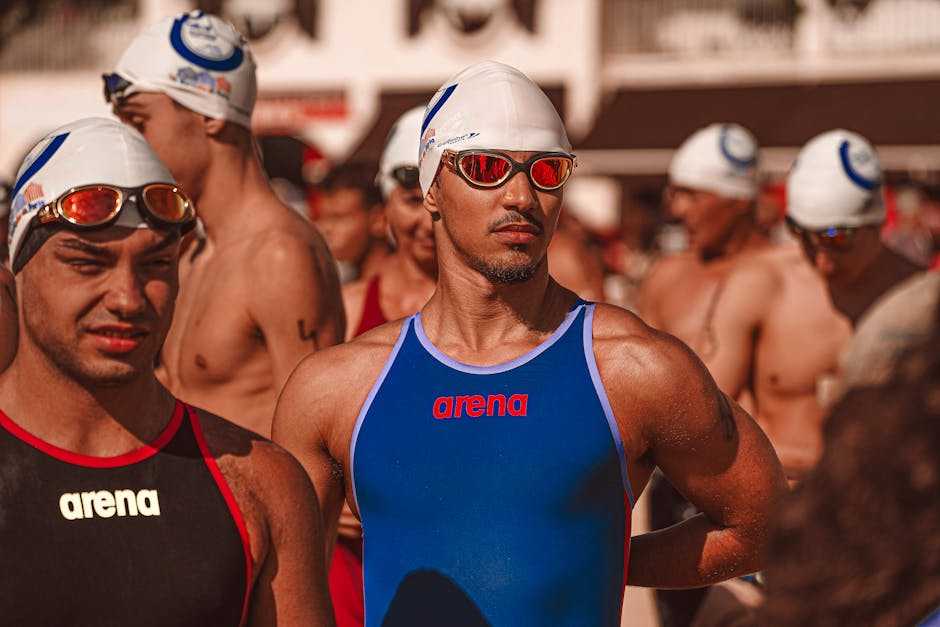As a seasoned swimmer, I understand the critical role that nutrition plays in enhancing performance and supporting recovery. When it comes to optimizing muscle growth and repair, protein stands out as a key player in a swimmer’s diet. In this article, I’ll delve into the specific protein requirements tailored to the unique needs of swimmers, focusing on how it contributes to muscle development and post-workout recovery.
Swimmers, like athletes in any other sport, rely on protein to repair and strengthen muscles that undergo rigorous training sessions. Understanding the optimal protein intake can make a significant difference in performance outcomes and overall well-being. Join me as I explore the science behind protein consumption for swimmers, shedding light on how this macronutrient can be a game-changer in achieving peak athletic condition.
Understanding Protein Requirements for Swimmers
As a nutrition expert, I dive into the critical role of protein in a swimmer’s diet for optimizing performance and ensuring speedy recovery. Let’s delve into why protein is indispensable for swimmers and how to accurately estimate their daily protein requirements.
Why Protein Is Crucial for Swimmers
I’ll explain why protein is vital for swimmers. Protein is the building block for muscle repair and growth, essential for swimmers to enhance their strength and endurance in the pool. It aids in the recovery process post-training, reducing muscle soreness, and ensuring quicker recuperation for the next session.
Estimating Daily Protein Needs
I’ll provide insights on estimating daily protein needs for swimmers. The recommended protein intake for swimmers varies based on factors such as training intensity, duration, and individual body weight. As a general guideline, swimmers should aim for around 1.2 to 2.0 grams of protein per kilogram of body weight per day to support muscle maintenance and repair.
Protein Types and Sources

When it comes to meeting my protein needs as a swimmer, understanding the different types and sources of protein is crucial for optimizing my performance and recovery.
- Animal-Based vs. Plant-Based Proteins
As a swimmer, I rely on a combination of animal-based and plant-based proteins to fuel my body effectively. Animal-based proteins such as chicken, turkey, fish, and eggs are rich in essential amino acids needed for muscle repair and growth. On the other hand, plant-based proteins like beans, lentils, quinoa, and tofu offer a variety of nutrients and fiber to support overall health and sustainability. - Best Protein Foods for Swimmers
Identifying the best protein foods for swimmers is essential for maintaining a well-rounded diet. Incorporating lean meats like chicken and turkey ensures a high protein content with low fat, promoting muscle development and recovery. Including fish such as salmon and tuna provides omega-3 fatty acids that support cardiovascular health and reduce inflammation, benefiting swimmers’ endurance. Eggs are another valuable protein source, offering a complete amino acid profile that aids in muscle maintenance and repair. Additionally, plant-based options like lentils and quinoa deliver a mix of protein and fiber, supporting digestive health and sustained energy levels during training sessions.
Timing of Protein Intake
Protein intake timing plays a crucial role in fueling my performance and enhancing muscle recovery. Let’s dive into the ideal strategies for maximizing the benefits of protein consumption around workouts.
Pre-Workout Protein Timing
Before hitting the pool, I focus on consuming protein-rich foods about 2-3 hours prior to my swim. This timing allows my body to digest and absorb essential amino acids, providing sustained energy during training. Opt for easily digestible sources like grilled chicken, Greek yogurt, or a protein shake to fuel your performance without feeling weighed down.
Post-Workout Recovery
After a demanding swim session, rapid muscle recovery is key to my performance. I prioritize consuming protein within 30 minutes to an hour post-workout to support muscle repair. Including lean sources such as salmon, tofu, or a protein smoothie can aid in replenishing glycogen stores and promoting muscle recovery. Stay hydrated and pair your protein intake with carbohydrates for optimal recovery and performance enhancement.
Customizing Protein Intake for Different Training Phases
In adjusting my protein intake to match distinct training phases, I focus on specific requirements to support muscle building and recovery effectively. Tailoring my protein consumption based on whether I’m in a bulking or cutting phase optimizes my performance and fitness goals.
Bulking Phase
During the bulking phase, I elevate my protein intake to facilitate muscle growth and repair. Consuming around 1.2-2.0 grams of protein per kilogram of body weight daily helps me maintain a positive nitrogen balance for muscle synthesis. Incorporating protein sources rich in essential amino acids like chicken, beef, or dairy products supports my muscle-building efforts effectively.
Cutting Phase
In the cutting phase, I adjust my protein intake to promote fat loss while preserving muscle mass. Consuming approximately 1.2-1.7 grams of protein per kilogram of body weight daily helps me stay satiated, maintain lean muscle, and support recovery. Opting for lean protein sources such as turkey, fish, or plant-based options like tofu or legumes aids in achieving my fitness goals during the cutting phase.
Managing Protein Intake Without Supplements
When it comes to managing protein intake without supplements, incorporating a whole foods strategy and combining various protein sources are key approaches that can effectively meet a swimmer’s protein needs.
Whole Foods Strategy
In my experience, focusing on whole foods is essential for optimizing protein intake without relying on supplements. Foods like lean meats, poultry, fish, eggs, dairy products, legumes, nuts, and seeds are excellent natural sources of protein that can support muscle building and recovery. By including a variety of these foods in my diet, I ensure a complete amino acid profile to enhance performance and aid in muscle repair.
Combining Various Protein Sources
In my daily nutrition plan, I prioritize combining various protein sources to diversify my nutrient intake and maximize the benefits for my swimming performance. Mixing animal-based proteins like chicken, fish, and eggs with plant-based options such as beans, quinoa, and tofu helps me achieve a well-rounded protein intake. This approach not only ensures I meet my daily protein requirements but also offers a range of micronutrients essential for overall health and recovery.
Common Mistakes in Protein Consumption
As a swimmer, it’s crucial to be mindful of common mistakes in protein consumption to optimize performance and recovery. Let’s take a look at two key pitfalls to avoid:
Overconsumption of Protein
While protein is essential for muscle building and recovery, consuming excessive amounts can lead to negative consequences. It’s important to remember that the body can only utilize a certain amount of protein efficiently. Overconsumption can strain the kidneys, dehydrate the body, and even lead to weight gain due to excess calorie intake. As a swimmer, focus on meeting your specific protein requirements rather than consuming excessive amounts that can do more harm than good.
Relying Solely on Supplements
Although protein supplements can be convenient, relying solely on them for your protein needs is a common mistake. Whole foods offer not only protein but also essential nutrients, vitamins, and minerals crucial for overall health and performance. While supplements can be a part of your diet, they should not replace a well-balanced meal plan based on natural protein sources. Diversifying your protein intake with a variety of whole foods ensures you get a range of nutrients that support your swimming goals effectively.


 is a seasoned fitness expert with a special focus on swimming and holistic health strategies. With years of experience as a competitive swimmer and fitness coach, Patricia offers readers a wealth of knowledge on optimizing performance and maintaining a balanced lifestyle. Her writing on Swim Fast Stay Fit reflects her commitment to empowering others with practical advice and motivational insights. Patricia’s approach integrates advanced training techniques with accessible wellness tips, aiming to help individuals achieve their personal fitness goals and enhance their overall quality of life. Through her engaging articles, Patricia inspires readers to embrace a comprehensive approach to health, combining effective exercise routines with mindful nutrition and self-care practices.
is a seasoned fitness expert with a special focus on swimming and holistic health strategies. With years of experience as a competitive swimmer and fitness coach, Patricia offers readers a wealth of knowledge on optimizing performance and maintaining a balanced lifestyle. Her writing on Swim Fast Stay Fit reflects her commitment to empowering others with practical advice and motivational insights. Patricia’s approach integrates advanced training techniques with accessible wellness tips, aiming to help individuals achieve their personal fitness goals and enhance their overall quality of life. Through her engaging articles, Patricia inspires readers to embrace a comprehensive approach to health, combining effective exercise routines with mindful nutrition and self-care practices.
